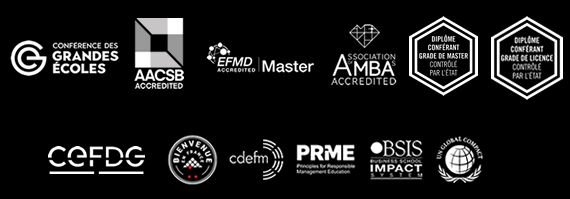Dr. Francesco Appio (EMLV, Business Group), Dr. Sylvie Lacoste (EMLV, Business Group) and Dr. David Yoon (EMLV, Business Group), are guest editing a Special Issue on ‘B2B Relationship Management in Complex Product Systems’ for the Industrial Marketing Management journal.
Deadline for submission: NOVEMBER 30, 2017
Complex product systems (CoPS) are high value, high technology and engineering-intensive products (e.g. aircrafts, high-speed trains), systems (e.g. telecom network), services (large ERP, software projects) and constructs (airports, intelligent buildings). They are business-to-business (B2B) customized goods, which are the backbone of our modern economy (Hobday et al., 2000). Hobday and Davies (2005), as pioneers of research on CoPS, provide conceptual frameworks to analyze the innovation dynamics, strategic and organizational insights of CoPS. Hence extant CoPS academic literature mainly focuses on the areas of process, organization, external environment and technology. For their inherent complexity, CoPS may emerge from search behaviors (Martini et al., 2016) and recombinatorial activities (Gruber et al., 2013) of knowledge bases spanning different disciplines and domains. Most often, such knowledge recombinations lead to CoPS that, being radical in nature, may replace well established systems and open new markets (O’Malley et al., 2014). The business area has not, so far, focused much attention and a review of articles specifically analyzing CoPS with a marketing lens shows that they remain scarce compared to their technological development (Brady et al., 2005; Davies et al., 2007; Winkelbach and Walter, 2015; Liinamaa et al., 2016).
Still, scholars in industrial marketing do refer to such complex products, but they tend to do it within a panel of other products (see for instance Lacoste, 2016) or to analyze marketing trends which, are not specific to CoPS, such as servitization (Kapletia and Probert, 2010; Raddats and Easingwood, 2010). In addition, due to the high entry barriers of CoPS, many latecomer firms in the past have shown their intrinsic weaknesses in technology. However, through the international technology transfer and technological alliances, these latecomer firms (e.g. China’s High-Speed Rail) have shown a significant progress in their technology (Lee and Yoon, 2015). As a result, the global competition from business and marketing perspectives in CoPS has become more intense than ever among the incumbent and latecomer firms. New marketing or selling perspectives and theoretical frameworks are thus called for investigating CoPS.
To advance our knowledge and theoretical understanding, and to shed further light on empirical examination and managerial applications, this Special Issue invites scholars to submit their best work that address CoPS, bridging a gap between innovation and organizational literature and marketing. The Special Issue editors invite papers that examine novel phenomena, employ original methodologies, and offer interesting empirical insights and theoretical contribution related to B2B relationship management in CoPS. Possible topics include, but are not limited to:
- Vertical or horizontal relationship management in CoPS
- ICT platforms and tools for collaborative management in CoPS
- Dynamic stakeholder networks in CoPS
- Marketing and selling of CoPS compared to other products and services
- Procurement and sales process of CoPS
- Exporting strategies of the firms in CoPS
- Interaction between the firms in CoPS and political regimes (domestic and foreign)
- Knowledge search practices and recombination in CoPS
- Intellectual property management and strategy in CoPS
- Co-creation and co-development in CoPS
Submission procedure
Find information about submission procedure at
http://www.journals.elsevier.com/
De Vinci Research Center – Business Group
Learn more about Francesco Paolo Appio – Sylvie Lacoste – David Yoon
Learn more about the Devinci Research Center – Business Group: www.devinci.fr



















